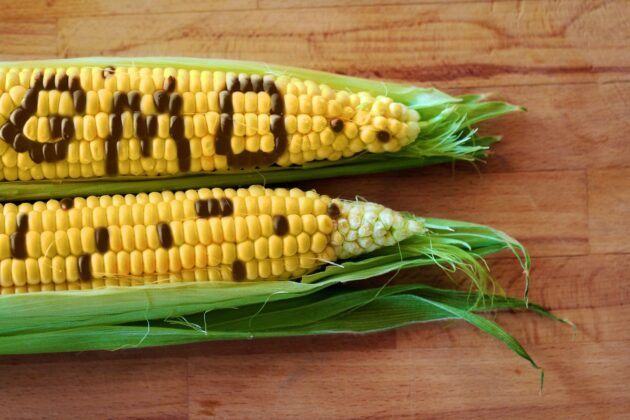
National Biosafety Authority assures Senators of safety of GMO products in the country » Capital News
NAIROBI, Kenya, Nov 17 – The National Biosafety Authority(NBA) has assured Senators and Kenyans in general of the GMOs and their derived products in the Country.
Appearing before the Senate Committee on agriculture and livestock development chaired in Mombasa chaired by Kirinyaga Senator, Mr Kamu Murango, the Authority’s acting chief executive officer Nehemiah Ngetich also outlined several GMOs crops that have been approved and those that are pending.
Mr Ngetich told told the Senate Committee that the Authority has already approved the commercialization of Bt Cotton, which has been in cultivation since 2020 and no adverse effects have been noted or reported through, the Authority’s monitoring and surveillance system.
“ Other crops such as Bt maize and virus resistant cassava are at advance stages of variety testing towards their commercialization,” added the acting chief executive officer,” added the acting Chief executive officer.
He told senators that Kenyans has a well-established legal, regulatory and institutional framework which provides for streamlined processes for persons dealing in GMOs and their derived products in the Country.
M.Ngetich the framework outlines specific application requirements, safety assessment procedures and monitoring mechanisms which align to Kenya’s commitment to food safety, environmental protection and the socio-economic wellbeing of its citizens.
The Authority’s cope include; fgenetically modified plants,genetically modified Animals, animal inputs including veterinary vaccines and genetically modified micro-organisms.
He disclosed that the law is being reviewed to anchor other emerging biotechnologies into the Biosafety Act – Genome Editing, Stacked Genes, Synthetic Biology and Gene drives.
Last week, High Court dismissed a case against lift of a ban on GMOs and their derived products re-affirming the Cabinet decision that lifted the ban on GMOs of 3rd October 2022 that Kenya has a robust legal and institutional framework to regulate GMOs.
Mr Ngetich observed that the Authority, has mandate to exercise general supervision and control over the transfer, handling and use of genetically modified organisms (GMOs) with a view of ensuring safety of human and animal health and provision of adequate level of protection of the environment.
“Kenya is a member of the international community and is a signatory to the Cartagena Protocol on Biosafety which is multilateral environmental agreement whose objective is to ensure an adequate level of protection in the safe transfer ,handling and use of GMOs.
At the national level, Kenya approved the National Biotechnology Development Policy in 2006, enacted the Biosafety Act in 2009 and has so far published four Biosafety Regulations namely; the Biosafety (Contained use) Regulations, 2011; the Biosafety (Environmental Release) Regulations, 2011; the Biosafety (Import, Export, and Transit) Regulations, 2011; and the Biosafety (Labelling) Regulations, 2012.
The Authority is also tasked with role to create public awareness to educate Kenyans on GMO foods, including regulatory safeguards, and the importance of informed consumer choice.
The Authority has so far published four regulations namely; Biosafety (contained Use) regulations, 2011,Biosafety(import,export and transit) regulations , 2011, Biosafety (environmental release)regulations , 2011 and Biosafety(labeling ) regulations 2012.
The Authority’s role fits well with the government agenda ; The Bottom-Up Economic Transformation Agenda(BeTA) focusing on agricultural transformation and inclusive growth ,transforming the micro, small and medium enterprises(MSMEs) economy among others.
Some of the strides that have been made by the Authority include; development and publication of necessary Biosafety regulations to support operations and mandates of the Authority.
The Authority’s core mandate targets to raise Public Awareness on Biosafety to facilitate adoption of Biotechnology to enhance Agri-productivity and climate change mitigation; develop a Reference GMO testing Laboratory to ensure safety of human and animal health and protection of the environment;
Others include; conduct Monitoring and Surveillance of GMOs to ensure safety of human and animal health and protection of the environment;enhance the Ease of Doing Business and Trade across borders to facilitate expeditious Biosafety clearance of cargo at border post and ports of entry; and sScience, Technology and Innovation Mainstreaming to facilitate the generation of new knowledge through research.
About The Author